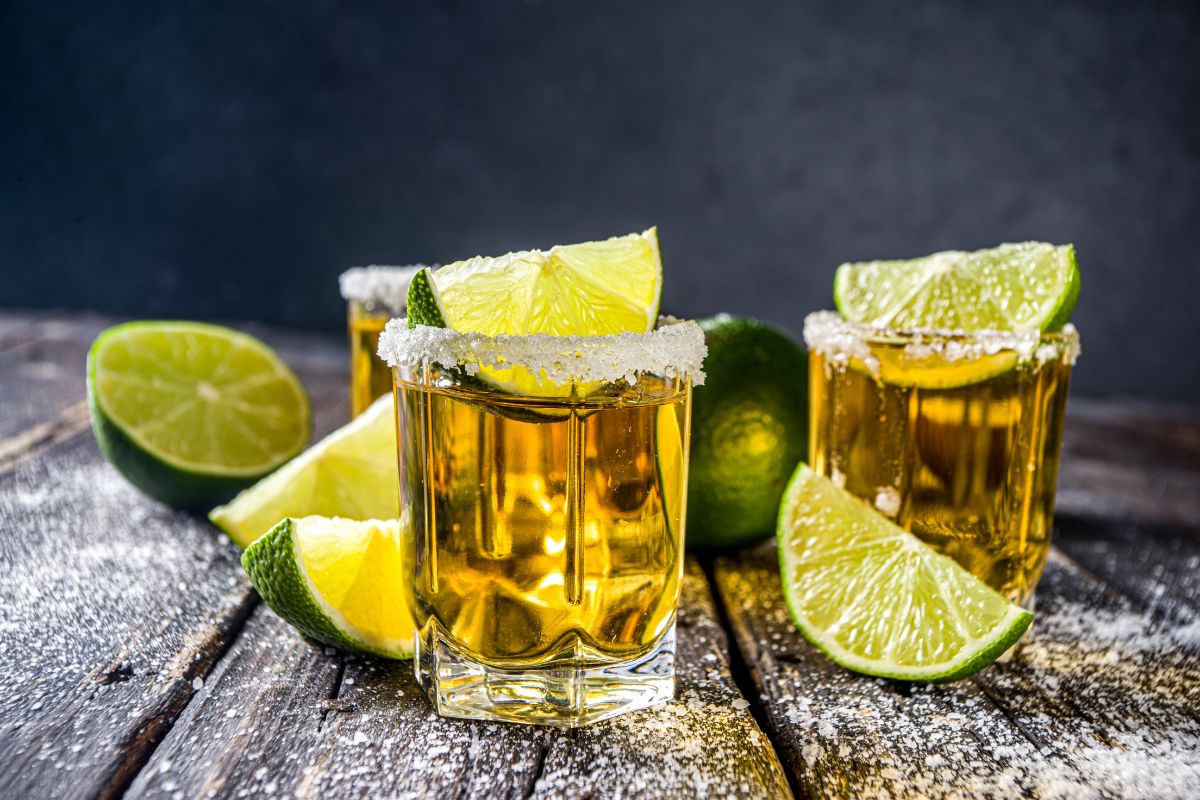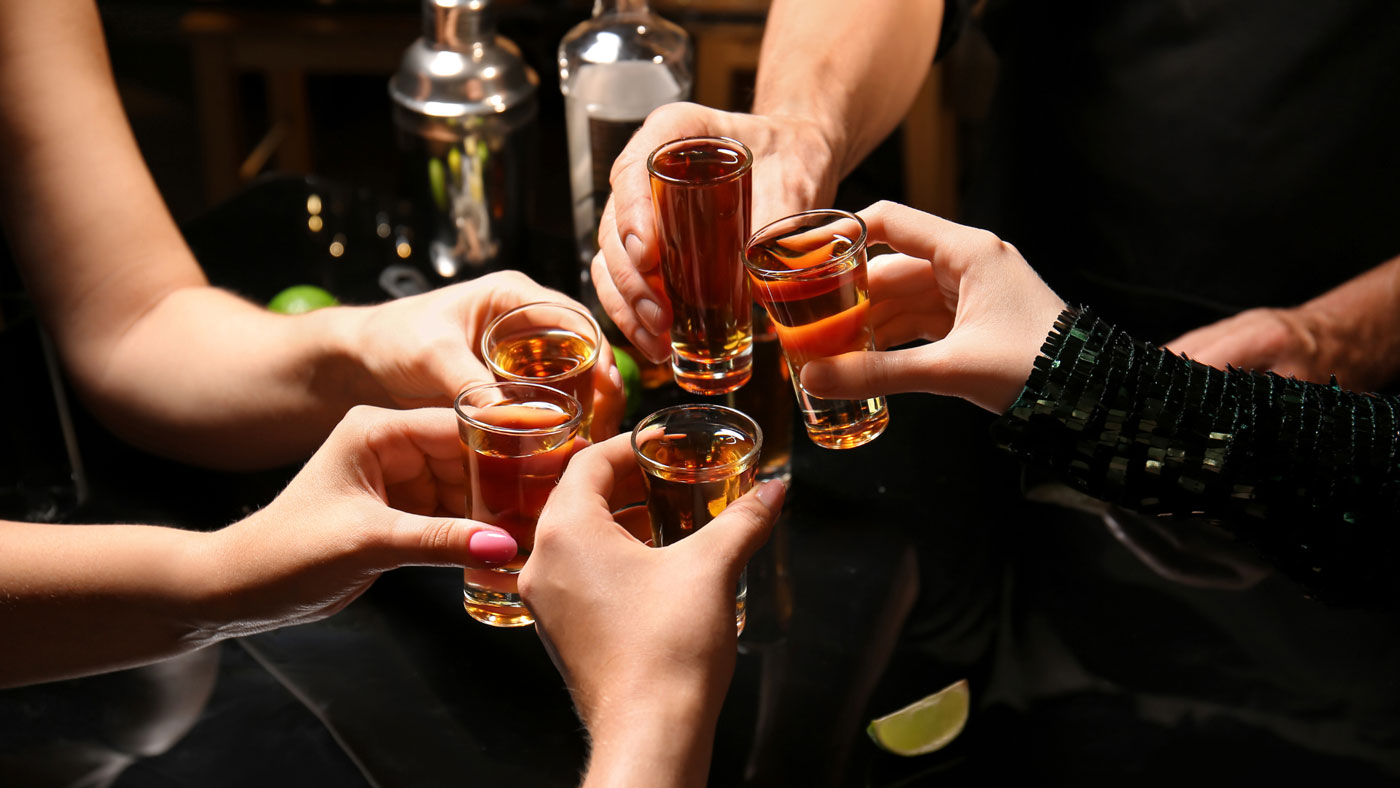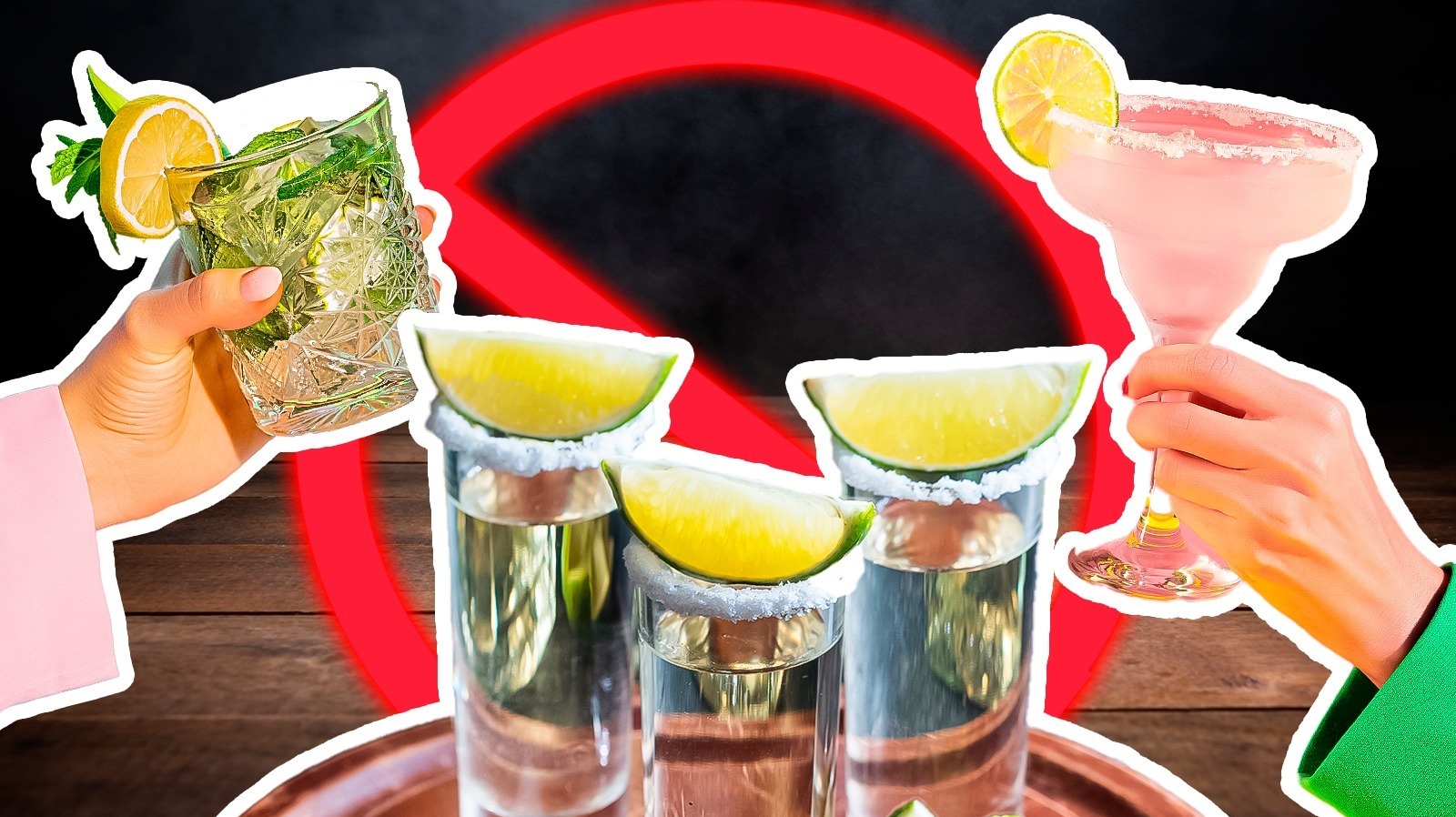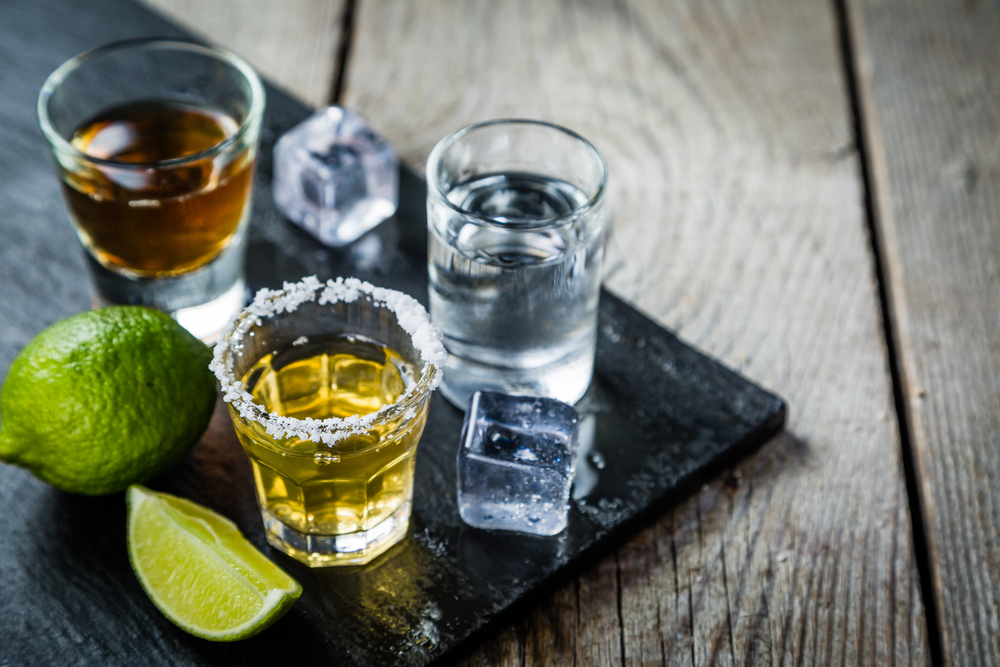Understanding Tequila And Its Effects
Tequila is a popular alcoholic beverage that is often associated with feelings of excitement and energy. While alcohol is generally known for its sedative effects, tequila is believed by many to have the opposite effect. However, it is important to understand that the effects of tequila are not solely determined by the liquid itself, but rather by various factors such as individual tolerance, consumption rate, and accompanying factors like mixers or personal mood. These factors can contribute to the perception that tequila acts as an “upper,” but it is essential to drink responsibly and be mindful of one’s own limits.
1 Tequila Overview And Composition

Tequila is a popular alcoholic beverage that originates from Mexico. It is made from the blue agave plant, specifically the core called the piña, which is harvested and cooked to release the sugars. These sugars are then fermented and distilled to create tequila. Tequila is classified into different types based on aging, including blanco (unaged), reposado (aged for a few months), and añejo (aged for at least one year). The alcohol content of tequila typically ranges from 35% to 55%. The unique composition of tequila, derived from the agave plant, contributes to its distinct flavor and character.
2 Tequila’s Impact On The Body And Brain
Tequila has a significant impact on both the body and the brain. When consumed, it enters the bloodstream and affects various systems in the body. Some of the effects include:
- Relaxation: Tequila can induce a sense of relaxation and temporary relief from stress and anxiety.
- Blood vessels: Tequila can dilate blood vessels, leading to increased blood flow and a warm sensation in the body.
- Cognitive function: While tequila is often associated with euphoria and energy, excessive consumption can impair cognitive function, leading to difficulty in decision-making and memory problems.
- Dehydration: Like other alcoholic beverages, tequila is a diuretic and can contribute to dehydration if consumed in excess.
Overall, the impact of tequila on the body and brain depends on the individual’s tolerance, the amount consumed, and other factors such as age and overall health. It is important to drink responsibly and in moderation to minimize any negative effects.
Types Of Alcohol And Their Effects On The Body
There are various types of alcohol, each with its own distinct effects on the body. Some common types include tequila, vodka, whiskey, rum, and wine. While the basic effects of alcohol, such as relaxation and impaired cognitive function, are similar across all types, there are also differences in the specific effects they have. For example, tequila is often associated with increased heart rate and feelings of euphoria, while whiskey can have a calming effect. It’s important to understand these differences and drink responsibly, regardless of the type of alcohol consumed.
1 Differences Between Uppers, Downers, And Depressants
Uppers, downers, and depressants are all terms used to categorize different types of drugs based on their effects on the body and brain. While they may share some similarities, there are distinct differences between them:
- Uppers, also known as stimulants, are substances that increase alertness, energy, and attention. Examples include amphetamines, cocaine, and caffeine.
- Downers, or depressants, are drugs that slow down brain activity and induce relaxation and sedation. Alcohol, benzodiazepines, and opioids fall into this category.
- Depressants, on the other hand, refer specifically to substances that depress the central nervous system and can cause drowsiness and reduced physical and mental activity. This includes alcohol, barbiturates, and tranquilizers.
It’s important to note that while tequila can produce feelings of euphoria and increased heart rate, it is classified as a depressant and not an upper.
2 How Tequila Compares To Other Alcoholic Beverages

When comparing tequila to other alcoholic beverages, there are a few key differences to consider. Unlike many other spirits, tequila is made specifically from the blue agave plant, giving it a unique flavor profile. Tequila also has a reputation for being smoother and less harsh than other liquors, making it easier to drink straight or in cocktails. Additionally, tequila is often associated with a more energetic and vibrant atmosphere, partly due to its connection to Mexican culture and celebrations. Overall, while different types of alcohol may have varying effects, tequila offers a distinct experience.
The Science Behind Tequila’s Effects
Tequila’s effects on the body can be attributed to its interactions with neurotransmitters. When consumed, tequila stimulates the release of endorphins, which are responsible for feelings of pleasure and euphoria. It also enhances the production of GABA, a neurotransmitter that helps to regulate anxiety and stress levels. Additionally, tequila contains agavins, a type of sugar that may have a prebiotic effect on the gut, promoting the growth of beneficial bacteria. These chemical interactions contribute to the unique impact that tequila can have on mood and behavior.
1 How Tequila Interacts With Neurotransmitters
Tequila interacts with neurotransmitters in the brain, leading to its unique effects on mood and behavior. When consumed, tequila stimulates the release of endorphins, which are responsible for feelings of pleasure and euphoria. It also enhances the production of GABA, a neurotransmitter that helps to regulate anxiety and stress levels. Additionally, tequila’s agavins, a type of sugar, may have a prebiotic effect on the gut, promoting the growth of beneficial bacteria. These chemical interactions contribute to the distinct impact that tequila can have on neurotransmitters, resulting in its unique effects on the body.
2 Tequila’s Influence On Mood And Behavior
Tequila has a unique influence on mood and behavior due to its interactions with neurotransmitters in the brain. When consumed, tequila stimulates the release of endorphins, which are responsible for feelings of pleasure and euphoria. It also enhances the production of GABA, a neurotransmitter that helps regulate anxiety and stress levels. These chemical interactions can result in a more energized and upbeat mood when drinking tequila. Additionally, tequila’s social setting and cultural associations may also contribute to a more lively and social behavior among individuals.
Tequila Myths And Facts
Tequila, like many other alcoholic beverages, has its fair share of myths and misconceptions. One common myth is that tequila is a stimulant, leading to feelings of energy and euphoria. However, this is not entirely true. While tequila does have some unique effects on mood and behavior due to its interactions with neurotransmitters, it is ultimately an alcoholic beverage and should be consumed responsibly. It is important to understand the facts and separate them from the myths when it comes to tequila and its effects on the body and mind.
1 Debunking Common Misconceptions About Tequila
Despite the myths and misconceptions surrounding tequila, scientific evidence debunks many of these beliefs. One common misconception is that tequila is a stimulant, leading to feelings of energy and euphoria. However, research shows that tequila has the same effects as other alcoholic beverages. It is important to understand that while tequila may have unique interactions with neurotransmitters, it is ultimately an alcoholic drink and should be consumed responsibly. By debunking these common misconceptions, individuals can make informed decisions when it comes to enjoying tequila.
2 Understanding The Truth Behind Tequila’s Reputation

Tequila has gained a reputation for being a party and celebration drink, often associated with wild nights and regretful decisions. However, it is important to understand that tequila itself is not to blame for these negative experiences. The way tequila is consumed and the quantity consumed play a significant role in how it affects individuals. When consumed responsibly and in moderation, tequila can be enjoyed without any negative consequences. It is crucial to separate the truth from the myths and misconceptions surrounding tequila’s reputation in order to appreciate this unique spirit for what it truly is.
Moderation And Responsible Drinking
Moderation and responsible drinking are essential when it comes to enjoying tequila or any alcoholic beverage. It is important to understand and adhere to recommended guidelines for alcohol consumption. The Centers for Disease Control and Prevention (CDC) defines moderate drinking as up to one drink per day for women and up to two drinks per day for men. It is also crucial to listen to your body and know your limits. Recognizing the signs of alcohol intoxication, such as impaired coordination and judgment, can help prevent excessive consumption. Additionally, having a designated driver or alternative transportation plan is necessary to ensure the safety of yourself and others. By practicing moderation and responsible drinking, you can enjoy tequila without compromising your well-being.
1 Tips For Enjoying Tequila Safely
When it comes to enjoying tequila safely, there are a few tips to keep in mind. Here are some guidelines to follow:
- Drink in moderation: Stick to the recommended guidelines for alcohol consumption. The Centers for Disease Control and Prevention (CDC) suggests up to one drink per day for women and up to two drinks per day for men.
- Know your limits: Understand your tolerance and listen to your body. Stop drinking when you start to feel intoxicated and never push yourself to exceed your limits.
- Stay hydrated: Drink plenty of water in between tequila shots to stay hydrated and minimize the effects of alcohol.
- Have a designated driver: If you plan on drinking tequila, make sure to have a designated driver or arrange for alternative transportation. Never drink and drive.
- Eat before drinking: Consuming a meal before drinking can help slow down the absorption of alcohol into your bloodstream.
By following these tips, you can enjoy tequila responsibly and ensure your safety and well-being.
2 Recognizing Signs Of Alcohol Intoxication
Recognizing signs of alcohol intoxication is crucial for ensuring the safety and well-being of yourself and others. Some common signs include slurred speech, impaired coordination, unsteady gait, flushed face, and bloodshot eyes. Other indicators may include slowed reaction time, poor judgment, decreased inhibitions, and changes in behavior or mood. It’s important to be aware of these signs and to take appropriate action if you or someone you know is displaying them. Additionally, if alcohol intoxication is severe, it may lead to confusion, vomiting, unconsciousness, or even alcohol poisoning. If you suspect someone has alcohol poisoning, it is vital to seek emergency medical attention immediately.
Conclusion
In conclusion, it is important to note that while tequila may not be classified as an upper in the traditional sense, it can certainly have an impact on emotions and perceptions. Various factors contribute to the perception of tequila as an upper, including the context in which it is consumed and individual experiences. It is crucial to drink tequila responsibly and in moderation to avoid any negative consequences. Understanding the effects of tequila on the body and brain can help individuals make informed choices about their alcohol consumption. By being aware of the facts and debunking common misconceptions, individuals can enjoy tequila safely and responsibly.
Comparison Between Tequila, Other Types Of Alcohol, And Their Effects

When comparing Tequila to other types of alcohol, it is important to understand the different effects they can have on the body. While Tequila is often associated with a stimulating or energizing effect, other alcohols may have different impacts. For example, wine and beer are generally considered to have a more relaxed and sedating effect. Whiskey and vodka may be known for their calming qualities, while rum and tequila are thought to have more energizing effects. However, it is essential to remember that individual reactions can vary, and the overall impact of alcohol on the body includes factors such as dosage, individual tolerance, and consumed in moderation.
FAQ About Is Tequila An Upper: Exploring Alcohol’s Effects
Q: What is the effect of Tequila on the body?
A: Tequila is a depressant that can slow down brain function and affect motor skills.
Q: Can Tequila make you feel energetic or like an upper?
A: Despite its reputation for causing heightened emotions, Tequila is not an upper. The perception of energy may be due to other factors such as the environment or social interactions.
Q: How does Tequila affect mood and behavior?
A: Tequila can initially induce a sense of relaxation or euphoria, but excessive consumption can lead to negative emotions like sadness or aggression.
Q: Is it safe to mix Tequila with other substances?
A: Mixing Tequila with other substances, including energy drinks or medications, can have dangerous effects on the body and may increase the risk of alcohol poisoning.
Q: How does the alcohol content in Tequila impact its effects?
A: The alcohol content in Tequila contributes to its effects on the body, with higher percentages leading to faster intoxication and more pronounced side effects.
Q: Can Tequila be addictive?
A: Tequila, like other alcoholic beverages, has the potential to be addictive due to its impact on the brain’s reward system and the development of tolerance over time.
Q: What are the potential long-term effects of consuming Tequila?
A: Long-term Tequila consumption can have detrimental effects on liver health, cognitive function, and overall well-being if not consumed in moderation.
